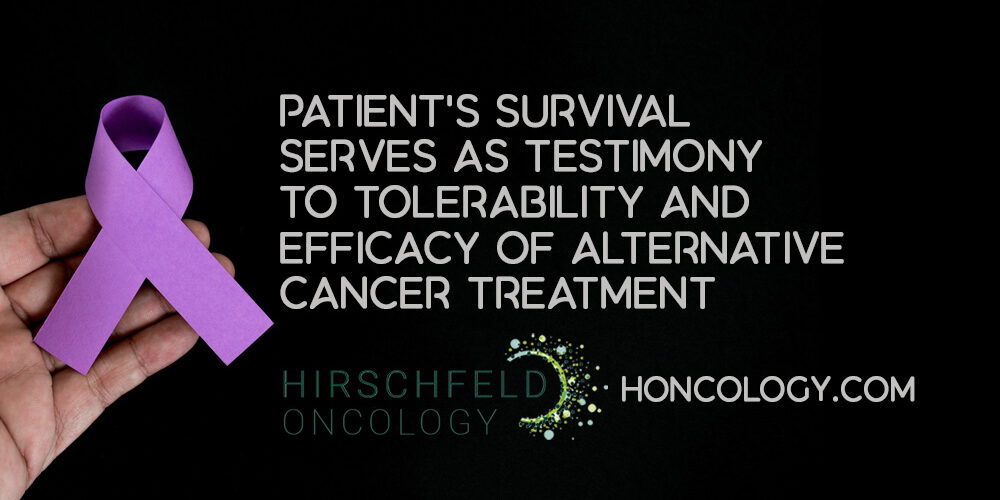Introduction to Patient-Centric Oncology Breakthroughs in 2026
A New Era in Oncology Care: Patient-Centric Advances
Cancer treatment in 2026 is evolving rapidly, marked by groundbreaking innovations that focus on the patient’s experience alongside medical success. This shift is fueled by an increase in cancer survivors and the growing complexity of patient needs post-treatment.
Rising Survivorship and Complexity
As of 2025, there are nearly 19 million cancer survivors in the U.S., expected to grow to over 22 million by 2035. This expanding population faces diverse challenges, including managing long-term side effects and navigating disparities in outcomes depending on cancer type. Tailoring care to meet these unique circumstances is a critical priority.
Embracing Multidisciplinary Care
Successful oncology today depends on coordinated efforts across specialties. Interdisciplinary teams play a vital role from diagnosis through survivorship and end-of-life care, ensuring comprehensive support that goes beyond medical treatment to include emotional and practical care needs.
The Blend of Science and Compassion
Cutting-edge technologies such as AI, precision medicine, and novel therapies are integrated thoughtfully with compassion-driven care models. This approach aims not only to extend life but also to enhance the quality of life for patients worldwide.
Patient-Centered Focus
Ultimately, 2026 oncology breakthroughs exemplify patient-centric care that transforms treatment landscapes by combining scientific innovation with personalized, empathetic care, addressing both the disease and the person it affects.
Key Facts on Advances in Cancer Treatment and Diagnostics
- Immunotherapy has extended survival from months to years in metastatic cancers like melanoma.
- CAR T-cell therapy achieved remarkable outcomes in blood cancers, with some patients living beyond ten years.
- Stem cell transplantation restores normal function after intensive treatment, improving survival and quality of life.
- Innovations like HIPEC and molecular profiling target tumors more precisely, reducing side effects.
- Baptist MD Anderson's integrated therapies advance prostate and other cancers, emphasizing personalized treatment.
- Liquid biopsies and AI enable early, non-invasive detection and personalized therapy predictions.
- Personalized cancer vaccines using mRNA technology aim to reduce recurrence and minimize side effects.
- Next-generation sequencing identifies tumor mutations, allowing targeted, less toxic treatments.
- AI models predict immunotherapy response with 70-80% accuracy, guiding personalized treatment.
- Hirschfeld Oncology integrates advanced diagnostics, multidisciplinary collaboration, and patient-centered care.
1. Integration of Immunotherapy and Cellular Therapies Transforming Outcomes
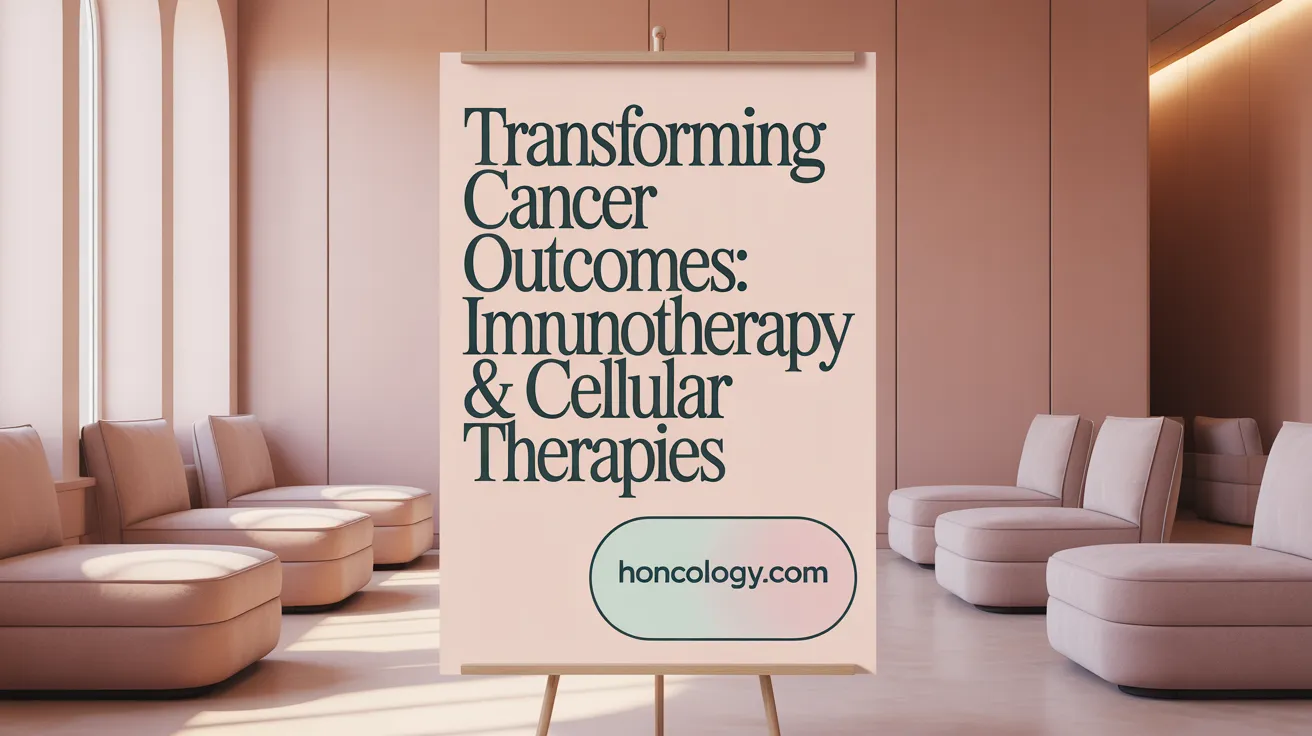
How are immunotherapy advances extending survival in metastatic cancers?
Immunotherapy has revolutionized the treatment landscape for metastatic cancers, extending survival from mere months to years in some cases. For example, metastatic melanoma patients now have about a 50% chance of living five or more years, compared to less than one year a decade ago. This therapy harnesses the immune system to target and eliminate cancer cells effectively, often providing durable responses where traditional treatments fall short. Learn more about Immunotherapy for advanced cancer, Immunotherapy and precision medicine, and Immunotherapy and precision medicine.
What breakthroughs have CAR T-cell therapy achieved in blood cancers?
CAR T-cell therapy represents a groundbreaking advancement for blood cancers such as multiple myeloma, aggressive lymphomas, and acute lymphoblastic leukemia. This cellular therapy uses genetically engineered immune cells to seek and destroy cancer cells. With treatment cycles typically lasting three to five weeks, CAR T-cell therapy has extended life expectancy dramatically, with some patients living beyond ten years following treatment. Explore CAR T-cell therapy for blood cancers and CAR-T-cell therapy outcomes and risks.
What innovations are there in stem cell transplantation?
Stem cell transplantation offers hope by replacing damaged or diseased stem cells, restoring normal function especially after intensive chemotherapy or radiation. Programs like Baptist MD Anderson’s new Stem Cell Transplantation and Cellular Therapy Program have helped patients achieve extended survival and improved quality of life.
How do newer therapies improve patient quality of life?
Novel therapies such as hyperthermic intraperitoneal chemotherapy (HIPEC) deliver heated chemotherapy directly to abdominal tumors, reducing systemic side effects. High-dose hepatic artery infusion targets liver cancer more precisely. Moreover, molecular profiling via next-generation sequencing personalizes treatments, maximizing effectiveness while minimizing toxicity. Read about Hyperthermic intraperitoneal chemotherapy (HIPEC) and Molecular profiling for mutation-driven therapies.
What examples showcase successful clinical programs?
Baptist MD Anderson in Jacksonville has made significant strides by integrating cellular and immunotherapies to extend survival and enhance quality of life. Their prostate cancer program employs focal therapy for prostate cancer to preserve urinary and sexual functions, complemented by support services for prostate cancer side effects managing treatment side effects. Discover more about the Comprehensive prostate cancer program.
These advances collectively demonstrate a significant transformation in cancer outcomes, shifting many cancers from terminal diagnoses to manageable or even chronic conditions with improved survival and life quality. For broader insights on Advances in cancer care in Jacksonville and Innovations in cancer treatments and diagnostics, see the linked resources.
2. Revolutionizing Early Detection with Liquid Biopsies and AI

Liquid Biopsies for Non-Invasive Tumor Profiling
Liquid biopsies are transforming cancer detection by allowing non-invasive analysis of circulating tumor DNA from blood samples. A prime example is Memorial Sloan Kettering's MSK-ACCESS blood test, which profiles 146 cancer-associated genes to monitor tumor changes over time. This method offers real-time insights into tumor genetics without the need for surgical biopsies, improving patient comfort and enabling repeated assessments.
AI Models Predicting Therapy Response and Cancer Risk
Artificial intelligence has become a powerful tool in oncology diagnostics. AI models trained on diverse clinical and imaging data can predict a patient’s response to immunotherapy with 70-80% accuracy. Advanced multimodal AI systems, such as the MUSK multimodal prognosis model, forecast cancer prognosis, therapy response, and likelihood of recurrence. These tools help tailor treatments, shifting cancer care towards anticipatory and personalized approaches.
Early Detection via Blood-Based Cancer Screening Tests
Cutting-edge blood tests have emerged that detect multiple early-stage cancers by analyzing specific blood proteins with high accuracy. These tests enable earlier diagnosis, often before symptoms appear, expanding screening options beyond traditional imaging. Their non-invasive nature and potential cost-effectiveness could significantly broaden population-wide cancer screening programs as noted in advances towards "New blood test for early-stage cancers".
Impact on Patient Outcomes Through Earlier Diagnosis
Earlier and accurate cancer detection through liquid biopsies and AI improves survival rates by guiding timely and targeted interventions. For instance, the integration of these technologies aids clinicians in identifying cancer subtypes and mutational profiles sooner, allowing the use of precise therapies that enhance treatment effectiveness and reduce side effects as outlined in “Cancer survivorship statistics” and “Cancer risk factors”.
Technological Integration in Diagnostic Protocols
The seamless incorporation of liquid biopsy data and AI-driven analytics into diagnostic workflows is enhancing decision-making. Institutions are increasingly adopting these innovations alongside standard screening to optimize care delivery. Continued development and validation promise widespread adoption, potentially redefining early cancer detection standards by 2026 and beyond, consistent with trends in “Advances in cancer screening technologies” and “Role of AI and gene editing in cancer treatment”.
3. Personalized Cancer Vaccines: Advancing Immune Engagement
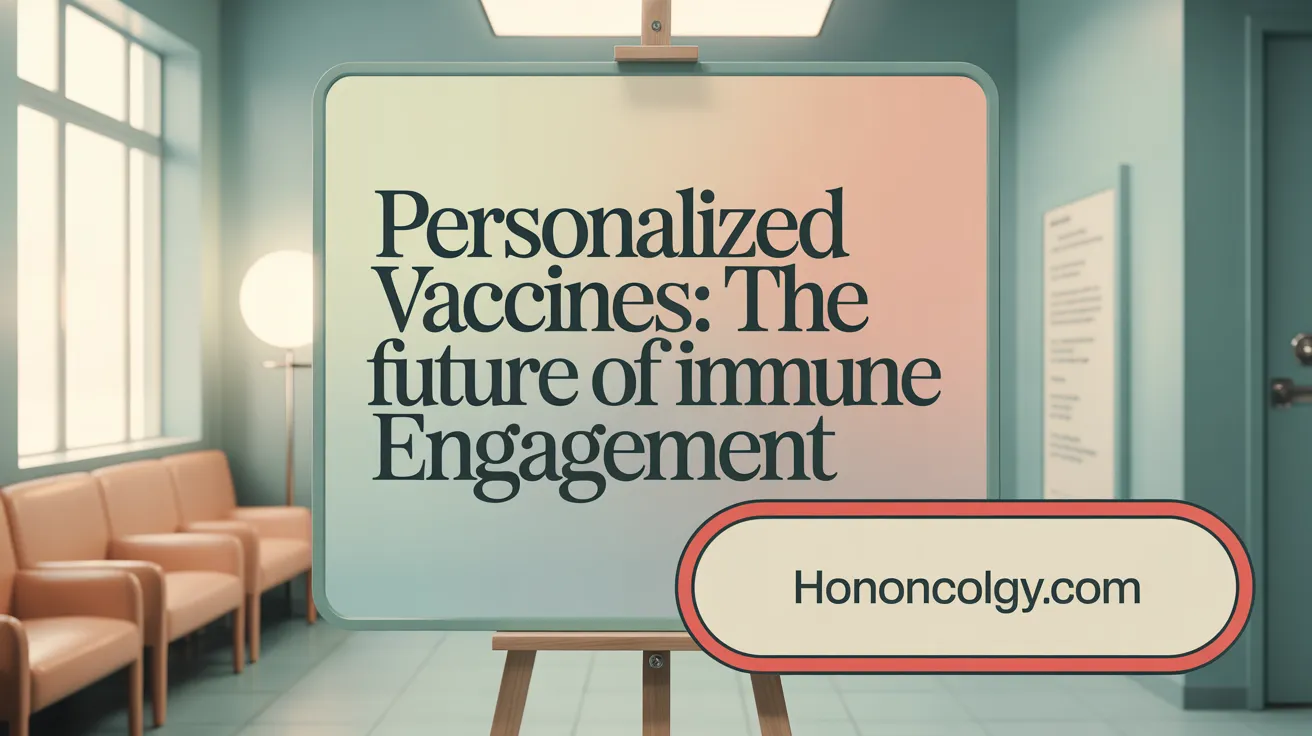
mRNA-Based Personalized Vaccines
Personalized cancer vaccines using mRNA technology for cancer represent a groundbreaking approach to treating cancer by priming the body's immune system to specifically target tumor cells. This technology adapts the success of COVID-19 mRNA vaccines to oncology, where vaccines are designed to stimulate a patient’s immune response against unique tumor markers.
Targeted Clinical Trials
Currently, clinical trials are underway focusing on cancers such as melanoma, colorectal, and lung cancer. These trials aim to test the safety, efficacy, and immune engagement of cancer vaccines tailored to individual patients' tumor profiles with the goal of reducing cancer recurrence. For more information, see Personalized cancer vaccines mRNA clinical trials.
Reducing Recurrence and Side Effects
These next-generation vaccines hold potential to reduce the likelihood of cancer returning post-treatment, and offer a targeted immune response that may minimize treatment side effects compared to traditional therapies like chemotherapy. Learn about Chemotherapy breakthrough in cervical cancer and advances in minimizing adverse effects.
Potential Universal Cancer Vaccines
Beyond personalized medicine, efforts are in progress to develop universal 'off-the-shelf' cancer vaccine capable of broadly activating the immune system against diverse tumor types, which could revolutionize cancer prevention and therapy.
Inspiration From COVID-19 Vaccine Success
The rapid development and success of mRNA vaccines for COVID-19 have accelerated the adoption of this platform in oncology, enabling faster manufacturing and adaptable vaccine design specific to cancer genetics, bringing hope for more effective immunotherapies as detailed in Personalized cancer vaccines with mRNA.
4. Precision Oncology Through Molecular Profiling and Targeted Therapies

What is next-generation sequencing for tumor genetic profiling?
Next-generation sequencing (NGS) is a cutting-edge technology that analyzes the DNA and chromosome makeup of tumors. It helps identify specific genetic mutations and aberrations unique to each cancer, providing a detailed molecular profile. Learn more about Next-generation sequencing for personalized cancer treatment and Molecular profiling for mutation-driven therapies.
How do therapies match molecular tumor characteristics?
By understanding the unique genetic alterations within a tumor, oncologists can tailor therapies that specifically target these mutations. This approach allows for personalized treatment plans that attack cancer cells more effectively while sparing healthy tissue. See details on Personalized cancer vaccines for NHS patients and Targeted chemotherapy for liver cancer.
How does precision oncology reduce toxicity?
Traditional cancer treatments often affect healthy cells alongside cancerous ones, causing significant side effects. Precision oncology uses targeted drugs informed by molecular profiling, leading to treatments that are generally less toxic and better tolerated by patients. Explore Precision oncology and targeted treatments and Breakthrough cervical cancer chemotherapy.
What are some examples in breast, prostate, and pancreatic cancers?
- Breast cancer: Molecular profiling supports targeted therapies for subtypes such as HER2-positive and hormone receptor-positive cancers, markedly improving survival. More about Advancements in metastatic breast cancer treatment.
- Prostate cancer: Programs offering focal therapy target only cancerous areas of the prostate to preserve urinary and sexual function. Read on Comprehensive prostate cancer program, Focal therapy for prostate cancer, and Support services for prostate cancer side effects.
- Pancreatic cancer: Biomarker analysis helps detect early stages, enabling earlier treatment with mutation-driven approaches that improve outcomes. See Biomarker analysis for pancreatic cancer detection and CAR T-cell therapy for leukemia remission.
How are mutation-driven therapies improving survival?
Patients receiving treatments tailored to the genetic signature of their tumors generally see better outcomes. This strategy has extended survival in various cancers by overcoming resistance mechanisms and optimizing therapy effectiveness. Discover more about Personalized medicine in breast cancer treatment and Tailored therapies for tumor subtypes.
5. Enhanced Patient Support Systems Elevating Compassionate Care
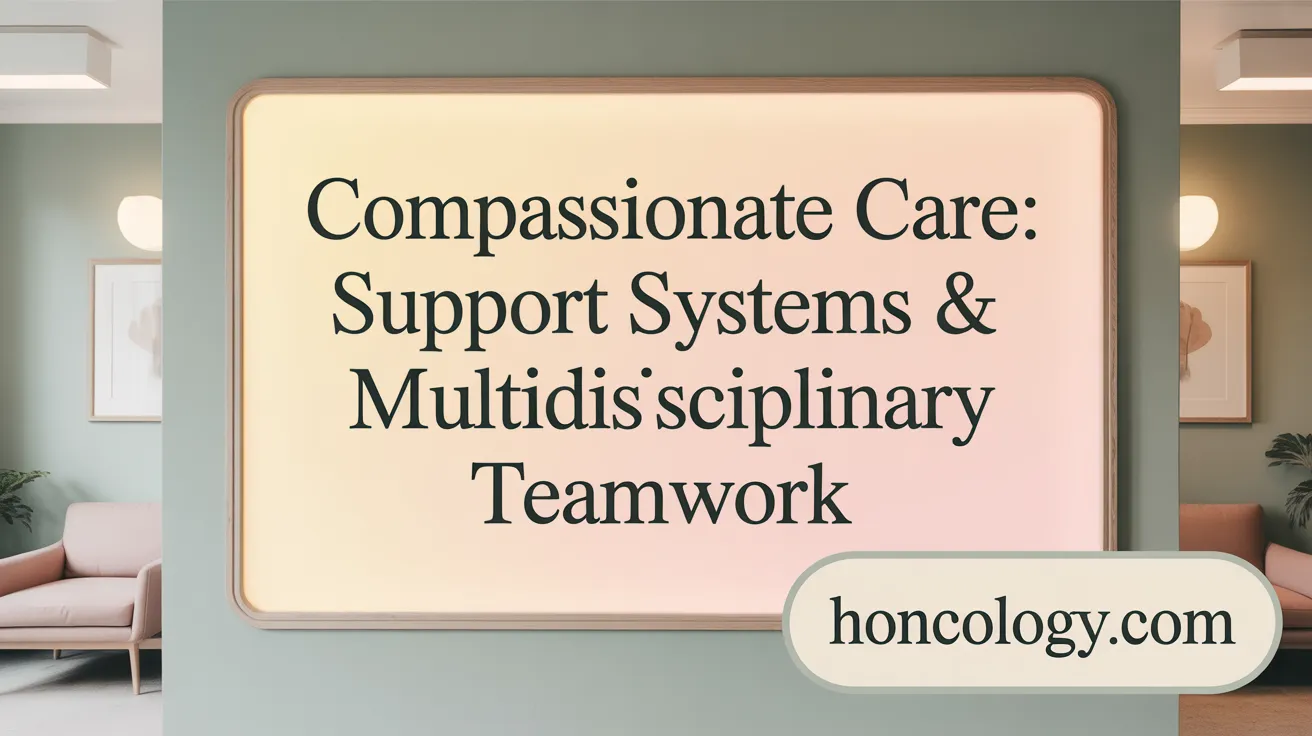
Multidisciplinary collaboration for holistic care
Modern oncology increasingly embraces interdisciplinary oncology teams that coordinate efforts throughout the entire cancer journey, from diagnosis to survivorship and end-of-life care. This approach ensures that patients receive comprehensive, seamless care that addresses not only medical treatments but also psychological, social, and practical needs.
Emotional support and symptom management integration
Oncology care programs are integrating emotional support with symptom management to improve quality of life. This includes addressing common side effects such as pain, fatigue, sexual dysfunction, and urinary symptoms, alongside psychological counseling and social support services. Specialist-led clinics and support groups help patients navigate the complexities of their diagnosis and treatment side effects.
Patient empowerment through education and communication
Effective communication strategies empower patients to actively participate in their care. Educational programs provide detailed information on disease progression, treatment options, side effect management, and coping mechanisms. Remote monitoring technologies and telehealth platforms further involve patients in ongoing symptom tracking and treatment compliance, enhancing self-management.
Specialized support for unique populations like younger metastatic breast cancer patients
Younger adults with metastatic breast cancer face distinct challenges, including delays in diagnosis and unmet psychosocial needs related to fertility, childcare, and emotional health. Tailored support groups and community programs have emerged to provide age-appropriate resources, reduce isolation, and foster peer support. Recent insights on challenges faced by younger MBC patients and support systems highlight these critical needs.
Bridging medical and emotional dimensions in oncology
Comprehensive oncology services now intentionally bridge medical care with emotional wellbeing. Integrated models combine advanced therapies with psychosocial support, recognizing that addressing emotional health is essential for optimal patient outcomes and survivorship experience. This holistic care ethos is a central pillar in oncology service redesigns focused on compassionate, patient-centered care.
6. Optimizing Therapeutic Delivery with Innovative Techniques

What are the latest advances in chemotherapy delivery methods?
Hyperthermic intraperitoneal chemotherapy (HIPEC) , often called "hot chemotherapy," is a cutting-edge technique that delivers heated chemotherapy directly into the abdomen. This approach targets cancers such as colorectal, ovarian, and gastric cancers with reduced systemic side effects compared to traditional chemotherapy. Similarly, high-dose hepatic artery infusion administers chemotherapy directly into the liver through a surgically implanted pump, shrinking tumors and potentially making previously inoperable liver cancers amenable to surgery.
How are rapid injectable treatments changing cancer care?
England's National Health Service (NHS) is pioneering a seven-minute injectable form of Atezolizumab (Tecentriq) for lung and breast cancers. This swift delivery drastically reduces treatment time compared to conventional intravenous infusions, optimizing resource use and patient convenience without compromising efficacy.
What role do robotic-assisted surgeries play in improving treatment outcomes?
Robotic-assisted surgical systems enhance the precision of tumor removal, reducing complications and preserving healthy tissue. These technologies contribute to better outcomes by minimizing surgical trauma and supporting faster recovery. This advancement aligns with broader trends in innovative cancer treatment technologies like robotic-assisted surgery.
How are these innovative methods balancing treatment effectiveness and patient quality of life?
These advanced delivery and surgical techniques are designed to maximize therapeutic efficacy while minimizing side effects. By focusing treatments precisely where needed, such as HIPEC's localized chemotherapy or robotic precision surgery, the overall patient experience improves. Rapid injectable therapies reduce hospital time, further enhancing quality of life during treatment.
Together, these innovations are setting new standards in cancer therapy, emphasizing improved outcomes along with patient comfort and safety.
7. Harnessing Artificial Intelligence to Empower Oncology Workflows
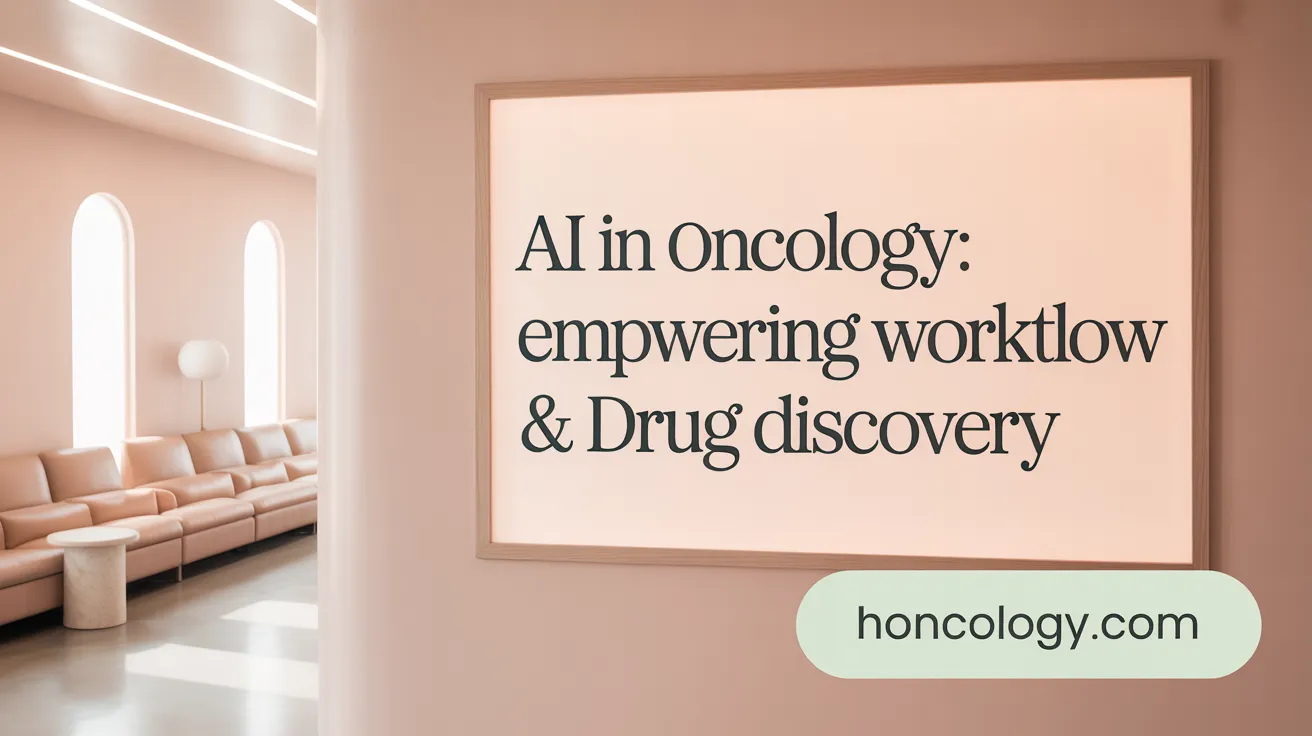
AI-driven drug discovery accelerating new therapies
Artificial intelligence (AI) is revolutionizing how cancer treatments are developed by rapidly analyzing potential drug candidates and simulating their interactions within the human body. This technology enables researchers to discover affordable, effective therapies faster than traditional methods, enhancing the pace of innovation in oncology. For more on AI-driven drug discovery, see the latest healthcare technology trends.
Machine learning for clinical decision support
Machine learning algorithms assist clinicians by processing complex clinical data to guide treatment choices. AI models can predict how patients might respond to immunotherapy with approximately 70–80% accuracy, helping tailor treatments to individual needs. Tools like the MUSK multimodal prognosis model forecast prognosis, therapy response, and cancer recurrence, shifting care models toward proactive, personalized intervention.
Virtual hospitals and remote patient monitoring
Virtual hospital concepts use AI to connect regional and local healthcare facilities with global oncology expertise remotely. This hybrid approach supports remote patient monitoring in oncology programs, enabling continuous care delivery beyond traditional hospital settings. AI-driven remote monitoring reduces healthcare access barriers, especially in underserved communities.
Predictive AI models for immunotherapy response and prognosis
AI systems trained on clinical and imaging data can identify patients most likely to benefit from immunotherapies and anticipate disease progression. These predictive capabilities improve patient outcomes by optimizing therapy selection and timing, contributing to more precise and effective oncology care. Learn about AI models predicting immunotherapy response and prognosis.
Addressing workforce shortages and enhancing patient access
AI acts as a workforce multiplier by assisting with symptom triage, scheduling, and follow-up care, easing the burden on oncology staff. It also facilitates telemedicine services and decision support, effectively expanding care capacity and enabling timely treatment access for a growing cancer patient population. Details on workforce empowerment and AI in oncology are available.
Leadership and Innovation at Hirschfeld Oncology
What role does Dr. Azriel Hirschfeld play in the cancer care team?
Dr. Azriel Hirschfeld is the driving force behind Hirschfeld Oncology’s commitment to personalized cancer care. With nearly 20 years of clinical and research experience, he leads the team by integrating key trends in cancer research and compassionate patient support.
He specializes in molecular oncology, focusing on innovative drug combinations for colon and breast cancers. His expertise extends to novel therapies, including immunotherapy and Metronomic chemotherapy algorithms, which he actively incorporates into treatment plans.
Dr. Hirschfeld’s approach centers on collaboration. He champions President's Theme 2025-2026, ensuring every patient receives tailored care driven by the latest research advancements. CancerX 2026 Startup Accelerator is a priority, helping individuals understand their treatment choices and empowering them throughout their cancer journey.
Under his leadership, Hirschfeld Oncology blends rigorous scientific inquiry with genuine compassion, fostering an environment where innovation and empathy work hand in hand to improve outcomes and quality of life for patients.
Innovative Strategies at Hirschfeld Oncology
What are the innovative strategies Hirschfeld Oncology uses in cancer care?
Hirschfeld Oncology is at the forefront of cancer treatment, integrating multiple innovative strategies to offer patients the most precise and effective care possible.
They utilize advanced diagnostics such as circulating tumor DNA (ctDNA) analysis and Liquid biopsies for early cancer detection. These cutting-edge tools provide detailed tumor profiling from blood samples, enabling non-invasive monitoring and early detection of cancer changes, which guides treatment adjustments in real time.
Personalized treatment plans are central to their approach. By combining systemic chemotherapy with immunotherapy and targeted drugs, treatments are carefully tailored based on the patient's specific tumor characteristics and molecular profile, improving efficacy and minimizing side effects. This aligns with the precision oncology and targeted treatments and the use of Molecular profiling for mutation-driven therapies.
Dr. Hirschfeld pioneered the use of low-dose combination chemotherapy involving multiple agents. This method increases safety by reducing toxicities while enhancing tumor control, particularly valuable for treatment-resistant cancers. Such approaches are related to Metronomic chemotherapy algorithms and Pre-treatment chemotherapy reducing cervical cancer mortality.
The clinic also explores advanced therapeutic approaches such as Metronomic chemotherapy algorithms, which deliver drugs at lower, more frequent doses to inhibit tumor growth and resistance, especially in challenging women's cancers.
Additionally, Hirschfeld Oncology does not shy away from off-label therapeutic uses when evidence and patient context support potential benefit, striving to optimize treatment outcomes.
Their strategy exemplifies the integration of rigorous research, flexible multi-modality treatments, and compassionate, patient-centered care, positioning Hirschfeld Oncology as a leader in Key trends in cancer research.
Collaborative Treatment Design at Hirschfeld Oncology
How does the medical team at Hirschfeld Oncology collaborate to design treatment plans?
At Hirschfeld Oncology, treatment planning is a fully collaborative effort involving a multidisciplinary tumor board. This team regularly convenes physicians, nurses, genetic counselors, and allied health professionals to thoroughly review complex cases and coordinate optimal cancer care strategies, aligning with best practices in Comprehensive Oncology Care Approach.
Specialist partnerships extend beyond oncology to include experts in immunology, cardiology, and nutrition. This cross-disciplinary approach addresses each patient's unique needs, manages side effects, and supports overall health throughout treatment, consistent with advancements in Support Services for Prostate Cancer Side Effects and Workforce Empowerment in Oncology.
The center actively participates in clinical trials and research networks, leveraging cutting-edge studies and emerging therapies such as Immunotherapy for Cancer Treatment and Molecular Profiling for Mutation-Driven Therapies to inform personalized treatment options, including Precision Oncology and Targeted Treatments and CAR T-cell Therapy for Blood Cancers.
Furthermore, Hirschfeld Oncology is adopting digital health tools and AI-driven decision support systems to refine diagnostics, predict therapy responses, and enhance care coordination across teams, leveraging Machine Learning and AI in Oncology and AI Models Predicting Immunotherapy Response.
Together, these components create a comprehensive, coordinated patient care environment that blends scientific innovation with compassionate support for improved outcomes, following Key Trends Shaping the Future of Cancer Research.
Compassionate Patient-Centered Care at Hirschfeld Oncology
How does Hirschfeld Oncology ensure a compassionate approach in its treatment plans?
Hirschfeld Oncology places a strong emphasis on compassionate, patient-centered care by addressing both emotional and medical needs throughout the treatment journey. Their medical team, led by experts such as Dr. Azriel Hirschfeld, prioritizes clear communication and active listening to build trust and understanding with each patient.
The center offers comprehensive supportive services, including nutritional counseling and effective pain management, to improve patients' quality of life during treatment. This holistic approach acknowledges the importance of emotional well-being alongside medical care.
A multidisciplinary team collaborates closely to create personalized treatment plans tailored to individual patient needs. This integration ensures that care is both scientifically advanced and attentive to each patient's unique circumstances.
By combining cutting-edge therapies such as CAR T-cell therapy with empathetic support, Hirschfeld Oncology fosters an environment of hope and healing, enabling patients to navigate cancer treatment with confidence and comfort. For insights on comprehensive oncology care approaches and supportive services for cancer treatment side effects, refer to these resources.
Looking Ahead: The Future of Patient-Centric Oncology Care
Transformational Breakthroughs in Oncology
Recent advances have dramatically reshaped cancer care. From personalized cancer vaccines using mRNA technology to liquid biopsies enabling earlier, less invasive detection, innovative treatments are changing outcomes. Immunotherapy and CAR T-cell therapies have extended survival in aggressive cancers, while next-generation sequencing offers tailored therapies based on individual tumor genetics.
Personalized, Compassionate Care
With over 22 million cancer survivors projected by 2035, the future focuses on patient-centered approaches. Programs like comprehensive prostate cancer care preserve quality of life by targeting only affected tissue and supporting side effect management. The shift also recognizes non-medical factors impacting outcomes, ensuring compassionate, equitable access across diverse populations.
Technology and Interdisciplinary Collaboration
Artificial intelligence aids early diagnosis and therapy response prediction, while telehealth and virtual hospitals expand access. Interdisciplinary oncology teams work from screening through survivorship, empowered by machine learning and advanced care models. These collaborations optimize workflow and patient satisfaction, even in remote areas.
Improving Survivorship and Quality of Life
Treatments now often transform metastatic cancer into manageable chronic conditions. Advances in supportive care and specialized programs address unique needs, especially for younger patients. The emphasis is on prolonging life while maintaining function, aligning with patient values and holistic well-being.
Commitment to Innovation and Patient Empowerment
Ongoing research, federal funding, and public-private partnerships like CancerX foster innovation. New clinical trials aim to overcome resistance and discover cures, while patient empowerment through education and remote management tools enhances engagement and outcomes. Together, these elements promise a future where cancer care is both precise and profoundly humane.





.png)


.png)
.png)


